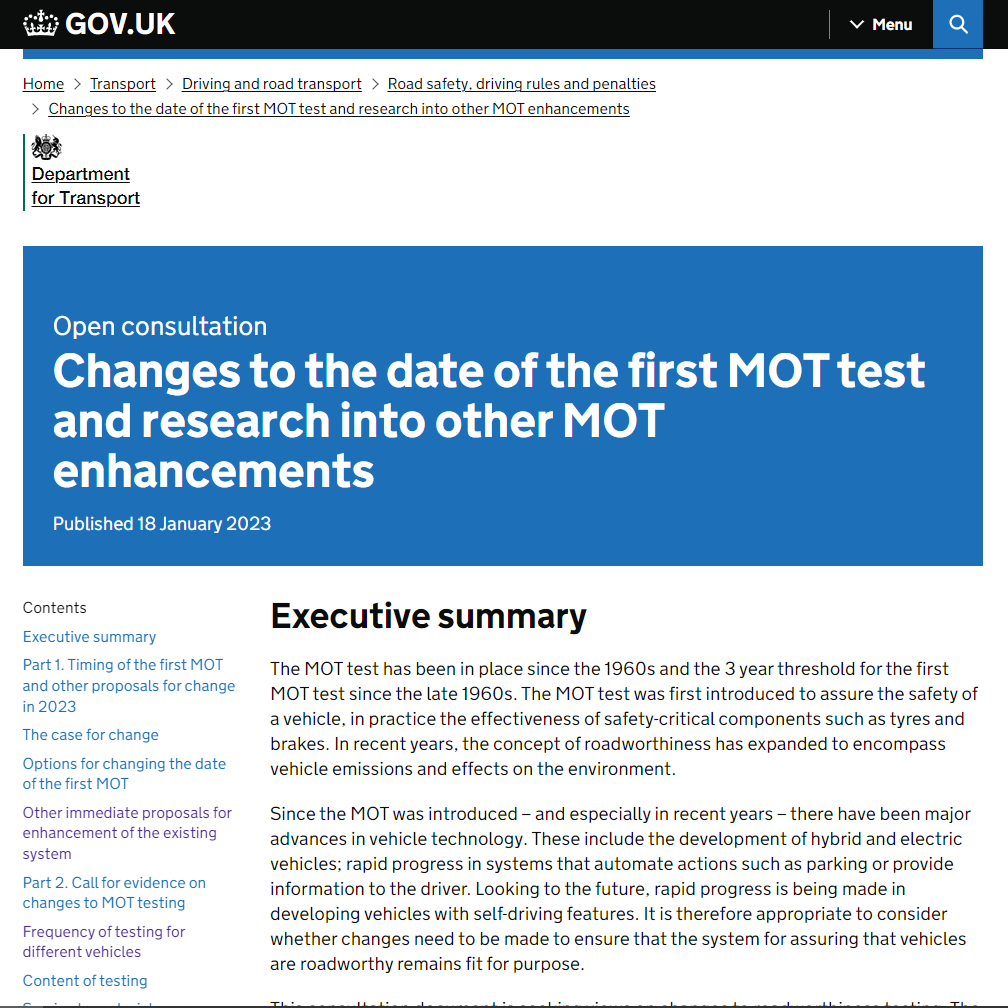The latest UK government consultation on the future of the MOT has now been officially released to the public. There have been many previous similar consultations, most recently in 2017. As a result of the last consultation, the government decided against proceeding with the proposed changes to the timing of the first MOT test. Now they are revisiting the timings of MOT tests despite the previous lack of support for such changes from the industry or the wider public.
This consultation is already generating headlines around the issue of testing frequency which has been put forward as a cost-saving initiative for car owners. Grant Shapps has made these claims in parliament, with Philip Hammond previously suggesting that a motorist could save £100 over 7 years by changing the frequency of MOT tests.
Predicted Loss Of Income
The government’s own assessment indicates that the 23,400 approved test centres could be deprived of up to £123.6 million a year. Based on these figures, that would be a loss of over £5,200 per test centre on MOT fees alone. This would be on top of the income lost not carrying out repairs coming from an MOT. It is also noted that there may be a further financial impact on garages that could arise because many owners combine the servicing of their car with an MOT.
More worryingly, Eric Smith, Kwik Fit’s MOT scheme manager, said, “We don’t believe there is good evidence to indicate that delaying a car’s first test beyond three years is a risk worth taking. In fact, the government’s own forecasts show that delaying tests could lead to an increase in road casualties.” This is supported by the government’s previous 2016 MOT consultation that suggested that there could be an increase in both fatalities and serious injuries from road traffic accidents.
Making MOTs Fit For The Future
The government is also focusing on the MOT test’s future needs because of shifting technologies in cars and potentially having autonomous vehicles on the road. As part of this, they are considering what a future MOT test centre will look like, the equipment requirements, and the necessary training or qualifications. This is understandable, given the technological developments around hybrid and electric vehicles.
They also seem to be exploring the idea of ‘electric-only’ test centres, with one question explicitly asking, “If garages only wish to maintain and test electric vehicles, do you think we should allow authorisation without the equipment needed for testing internal combustion engines?” However, given that of the 33 million cars registered in the UK, only 650,000 are fully electric, this does not seem like a viable option at this time.
Overall, there are 56 questions that could significantly change the existing system of MOT testing in this current consultation. We advise anyone affected by the proposed changes to read the consultation document and complete the online survey. The consultation period began on 18 January 2023 and will run until 28 February 2023. You can find links to the consultation document and online survey below.
Changes to the date of the first MOT test and research into other MOT enhancements

